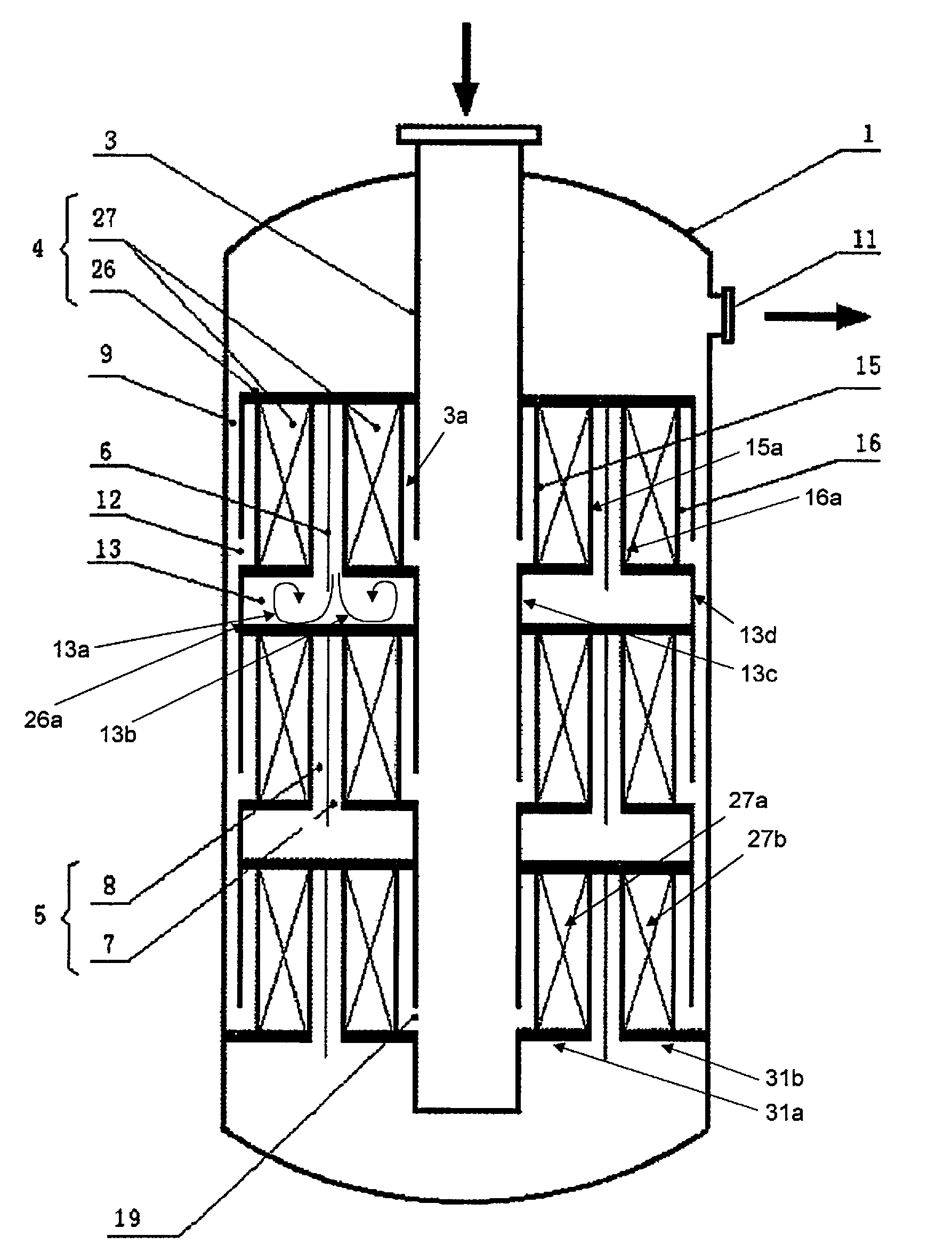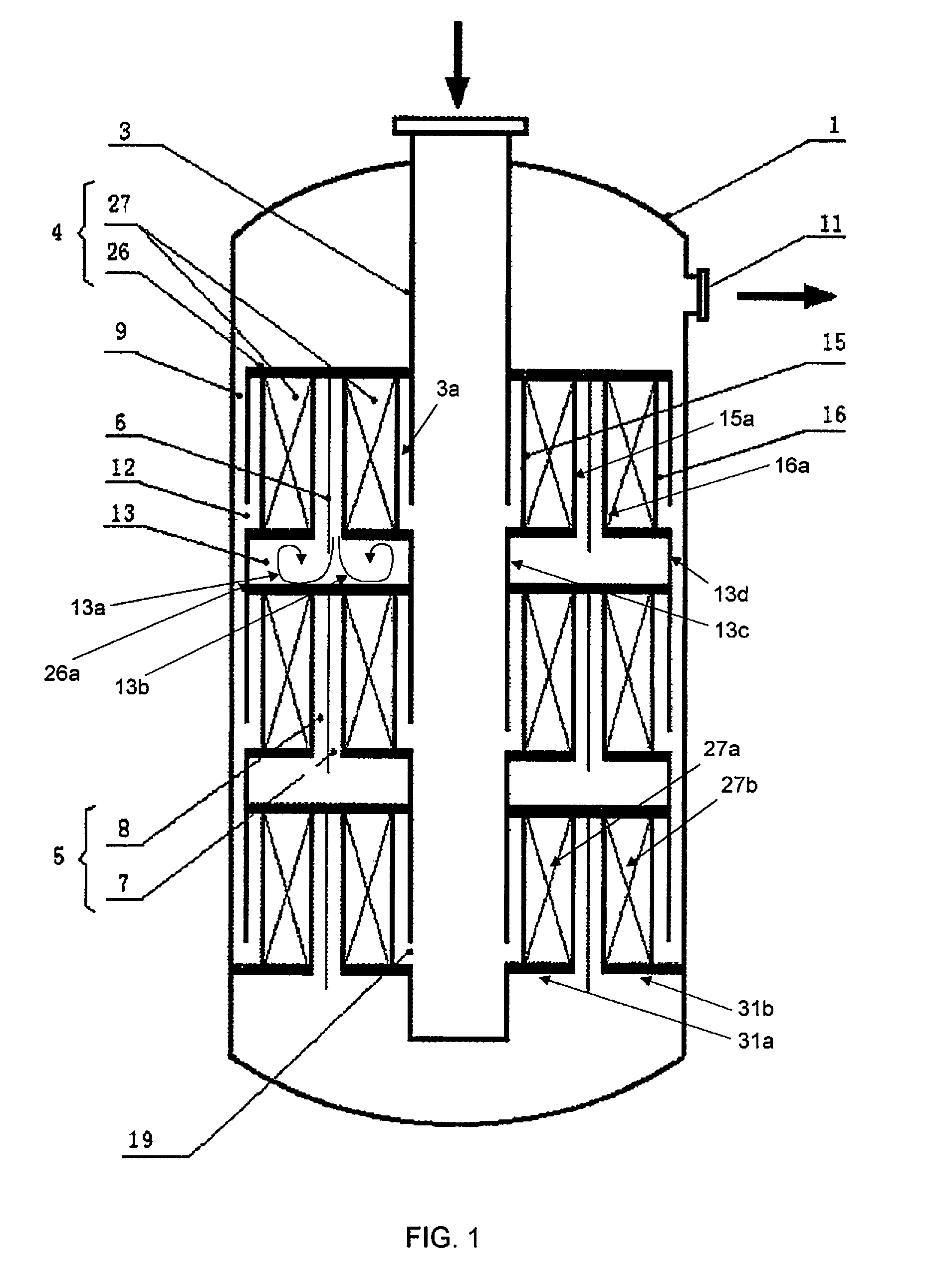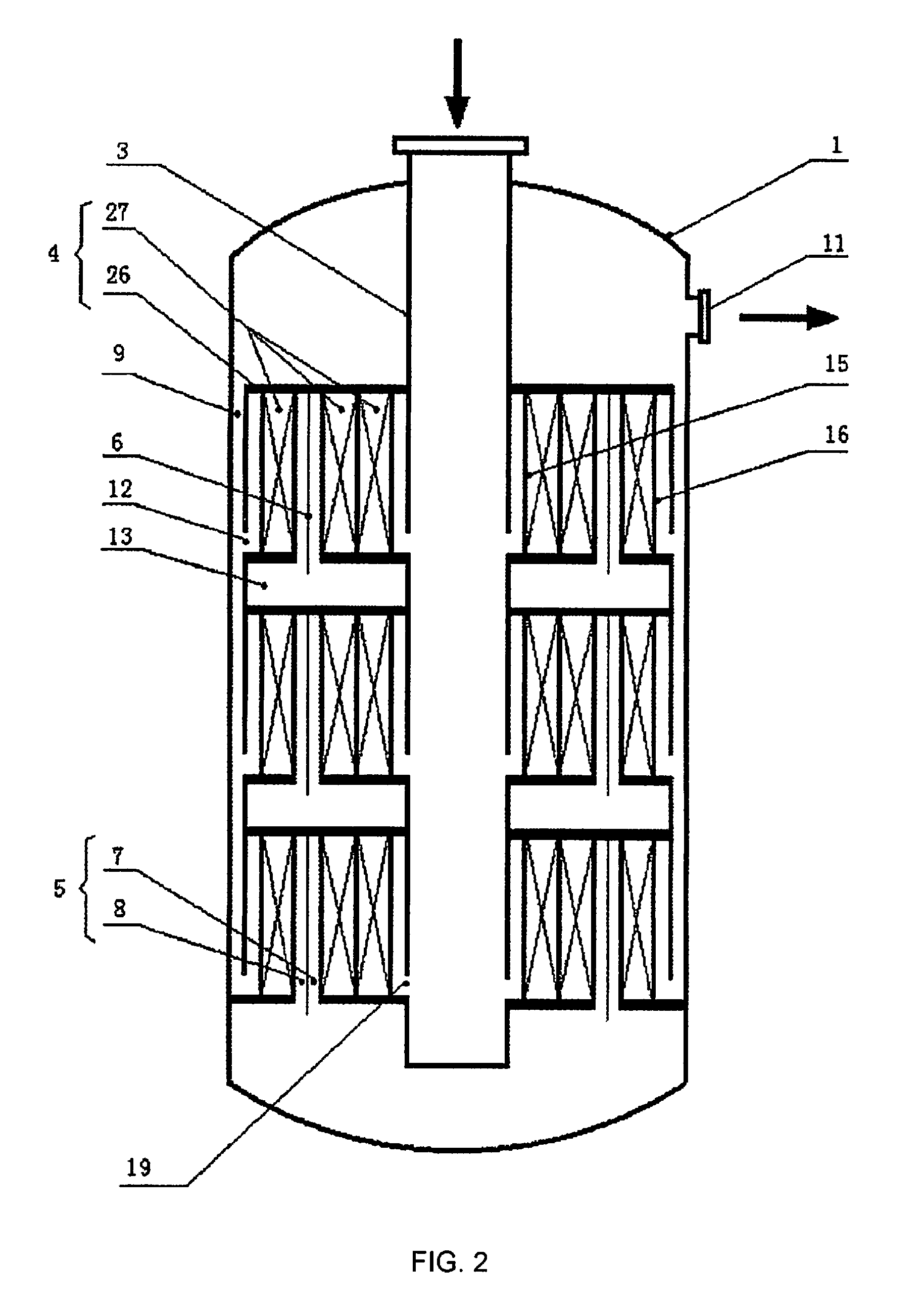Radial-parallel catalytic reactor
a catalytic reactor and radial parallel technology, applied in chemical/physical/physical-chemical stationary reactors, chemical apparatus and processes, chemical/physical/physical-chemical processes, etc., can solve the problems of destroying the adiabatic conditions of the catalyst layer, affecting the catalytic activity and lifespan, and unable to meet the requirements of further scale-up production, etc., to improve the catalyst activity and lifespan, simplify the heat transfer process, and the operation work of the added apparatus is relatively simpl
- Summary
- Abstract
- Description
- Claims
- Application Information
AI Technical Summary
Benefits of technology
Problems solved by technology
Method used
Image
Examples
example 1
[0038]With reference to FIG. 1, it shows a radial-parallel catalytic reactor according to one embodiment of the present utility model, comprising a reactor shell 1 and three axially juxtaposed radial catalytic-reaction beds 4 along a feed tube 3 in the shell 1; each radial catalytic-reaction bed 4 has an inner perforated plate 15 in communication with the feed tube 3; an inlet 19 of the feed tube is provided at an appropriate position of the feed tube 3, and the inlet 19 together with the inner perforated plate 15 of the radial catalytic-reaction bed 4 forms a gas-distribution channel.
[0039]In this embodiment, each radial catalytic-reaction bed 4 is divided into two bed layers 27, and the bed layers 27 in a same radial catalytic-reaction bed 4 have a common top plate 26; the bed layers are filled with the same or different catalysts, depending on reaction requirements, which may include ammonia synthesis, hydrocarbon catalytic reactions, or similar large scale industrial processes. ...
example 2
[0044]With reference to FIG. 2, the radial-parallel catalytic reactor in this embodiment is substantially the same as the one in Example 1, except that the reactor in this embodiment comprises a catalytic-reaction bed 4 having three bed-layers, wherein an annular gap is provided between second reaction bed-layer and third reaction bed-layer along a flow direction of reaction mass.
[0045]Similarly, depending on actual reaction needs, an annular gap may be provided between first and second reaction bed-layers or between each reaction bed-layer along the flow direction of reaction mass.
[0046]Likewise, the present utility model may comprise a plurality of reaction bed-layers and a plurality of annular gaps between the bed-layers. For clarity, the variants are not described here in detail. It should be understand by the skilled in the art that the variants of these embodiments all fall in the scope of the present utility model as claimed.
example 3
[0047]With reference to FIG. 3, the radial-parallel catalytic reactor in this embodiment is substantially the same as the one in Example 1, except that the reactor in this embodiment uses an external tube 28 as a substitute for the interlining 9 to discharge the reaction products.
PUM
 Login to View More
Login to View More Abstract
Description
Claims
Application Information
 Login to View More
Login to View More - R&D
- Intellectual Property
- Life Sciences
- Materials
- Tech Scout
- Unparalleled Data Quality
- Higher Quality Content
- 60% Fewer Hallucinations
Browse by: Latest US Patents, China's latest patents, Technical Efficacy Thesaurus, Application Domain, Technology Topic, Popular Technical Reports.
© 2025 PatSnap. All rights reserved.Legal|Privacy policy|Modern Slavery Act Transparency Statement|Sitemap|About US| Contact US: help@patsnap.com



